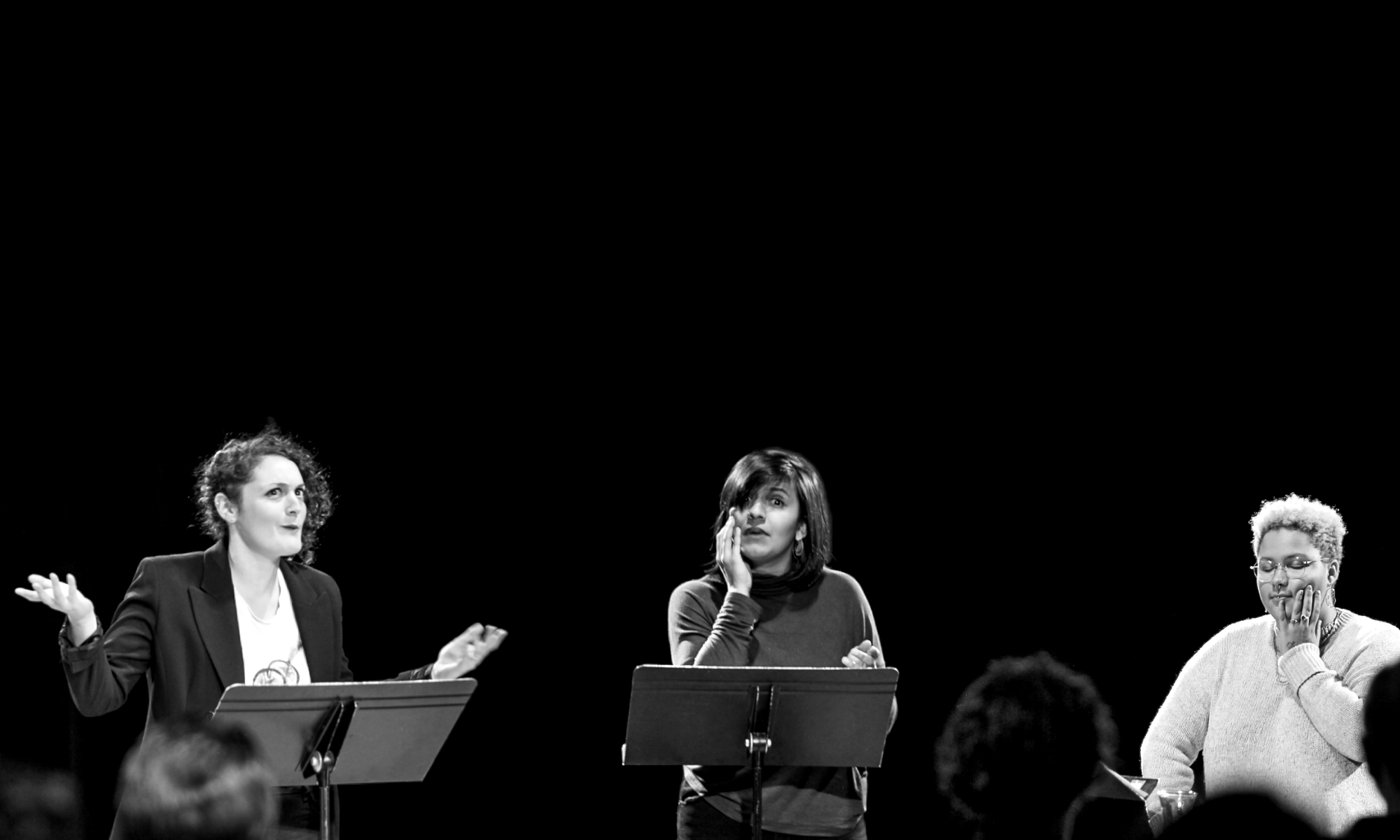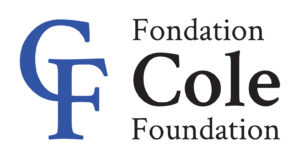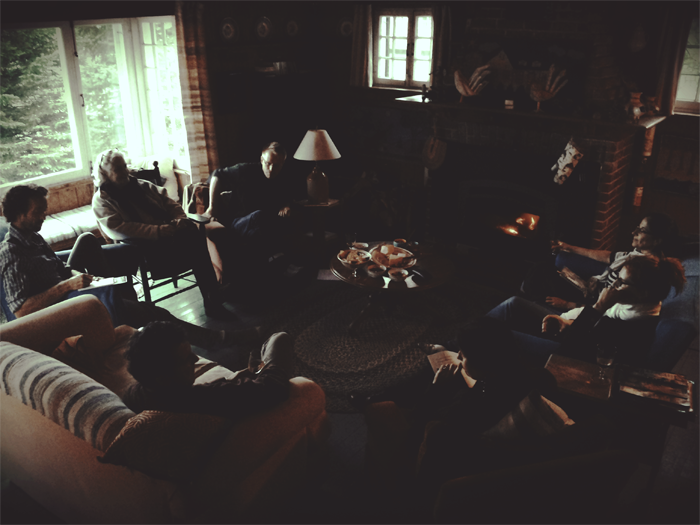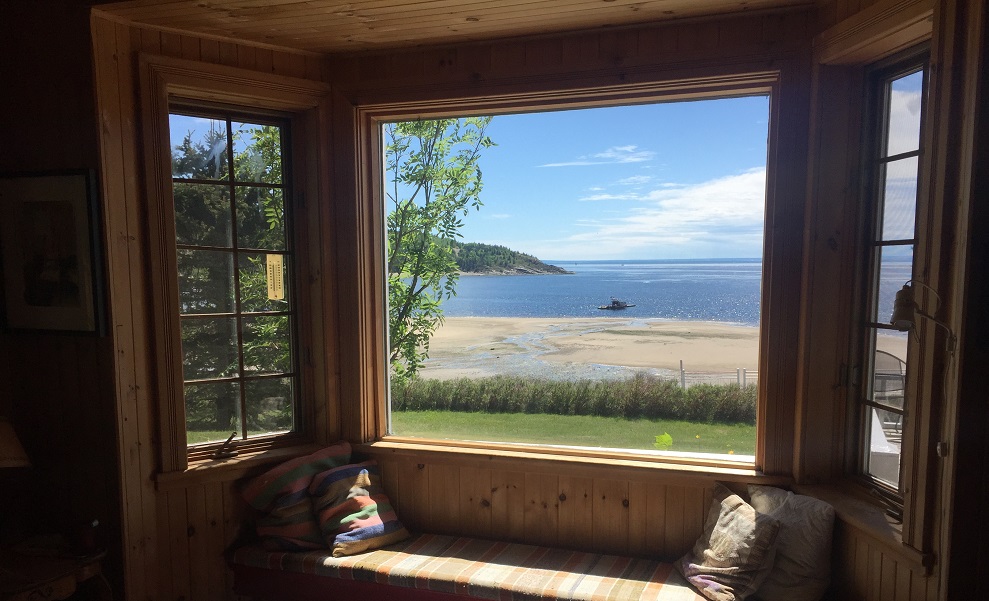… but because I was too shocked and amazed, I have no idea what I really said at the podium.
On November 3rd, I was awarded the Unsung Hero of the Theatre Award at the 7th Montreal English Theatre Awards ceremony. It was a beautiful and completely unexpected moment that I will treasure for years to come. Since I have no idea what I said when I walked up on stage at the Monument National, I’ve written some more organized thoughts and thank yous here.
I want to thank those who nominated me for this award. It feels incredible to be recognized for my role as an Arts Advocate. It’s part of my work as a General Manager that I get really excited about — but that not many in the theatre community know that I do.
If there is one thing I wish I would have said up there at the podium, it’s that arts advocacy is cool! It’s about getting to know your funders, decision-makers and elected officials and telling them about your art! At the core, it’s about building relationships. It’s about sharing stories and perspectives on what makes a community strong. And really — it’s about making sure the arts continue to be funded and supported.
Since most of us working in theatre mainly get our funding from government sources (which includes Arts Councils), it behooves all of us to be arts advocates. It’s vital work that takes persistence and teamwork, and it needs to be a necessary part of our practice as theatre artists and cultural workers.

I would like to invite you to start being an arts advocate right now – because guess what? It’s actually pretty easy. Quoting arts advocate extraordinaire, Kate Cornell (Executive Director of the Canadian Dance Assembly, and Co-Chair of the Canadian Arts Coalition), here are 5 simple things you can start doing right now (written with the dance sector in mind, but works for us theatre people too):

I want to thank my amazing team at PWM, for supporting me in my advocacy passions which also includes putting up with me being away at meetings and events. Thank you Emma Tibaldo, Sarah Elkashef, Jesse Stong, Harris Frost, Heather Eaton, Marc Duez, and Josh Johnston. Thank you also to Charmaine Ciano and Danielle Eyer. And thank you to our amazing Board of Directors.
Finally, I want to thank the METAC: Jessica Abdallah, Trevor Barrette, Tau S. Bui, Michaela Di Cesare, Kym Dominique-Ferguson, Karine Kerr-Gillespie, Danielle Laurin, Orlando López, Elaine Normandeau, Stephen Maclean Rogers and Danielle Skene for awarding me this honour and organizing such a beautiful event. My heart and spirit expanded three sizes on November 3, and you’ve helped renew my commitment to continue ‘repping the English theatre community in Quebec and beyond.
All my love,
P.S. If you want to take your role as an arts advocate a step further, here are two initiatives I am inviting you to participate in this year:
1
At the Federal level, we just elected a new minority government. Now is the time for arts advocates to get to know our newly elected MPs and begin our work together. If you’ve never participated in Arts Day on the Hill in Ottawa, now would be the time to do it! It is an eye-opening, extremely educational experience. It teaches you how to talk about your art to a politician (which easily translates to learning how to talk about your art to anyone who isn’t an artist). Mark your calendars for May 5, 2020. Every year, the Canadian Arts Coalition needs more artists in attendance for Arts Day, which has become the largest single-day lobbying event in recent history. It’s a short day trip to Ottawa. I will definitely be going (so let’s carpool?) Travel subsidies are often available for equity-seeking artists. Sign up for their newsletter to get involved.
2
At the Provincial level, the Conseil québécois du théâtre (CQT) is in the midst of organizing the Plan Directeur du théâtre professionel au Québec. It’s a plan outlining the current challenges our theatre community is facing in Québec, and how the community will address them in the next 10 years. The CQT will need your help in shaping and realizing this plan. Sign up for the CQT’s newsletter to stay informed of this process and how you can be involved. The CQT needs your participation to make this plan work for you. Attend events, and stay informed.
P.P.S. As you can tell, I love talking about this stuff. If you want to talk more about it with me, send me an email!
























